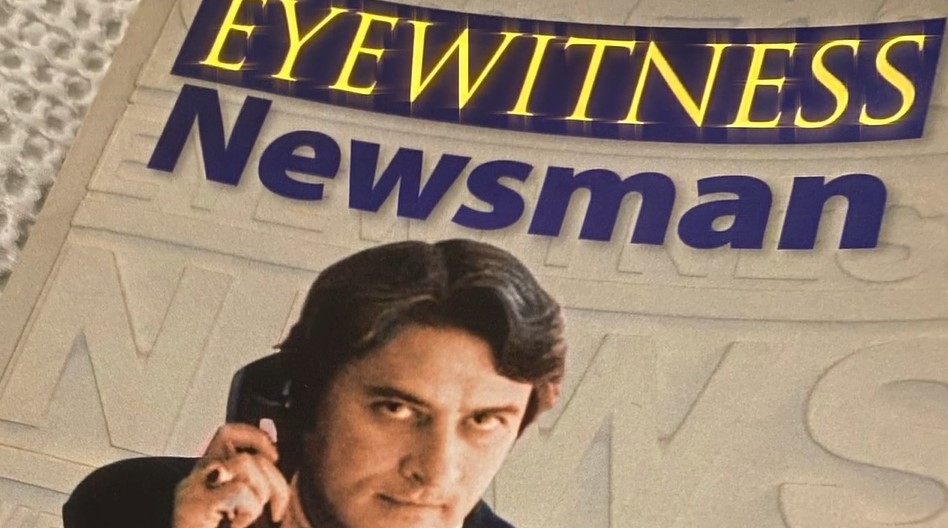 With time slots harder to find for their programming, they continue to develop opportunities to get their programs on the air, not only on weekends, but weekdays as well. And they are adapting their business models to the new realities of the marketplace, taking advantage of regulatory changes and seeking non-broadcast outlets at home and abroad.
With time slots harder to find for their programming, they continue to develop opportunities to get their programs on the air, not only on weekends, but weekdays as well. And they are adapting their business models to the new realities of the marketplace, taking advantage of regulatory changes and seeking non-broadcast outlets at home and abroad.
Small, Indie Syndicators Get Creative To Grow
Life for small, independent program syndicators isn’t easy these days, especially since their bigger rivals have begun snapping up many of the weekend time slots the indies once thrived on.
On a typical weekend in October, 34 of the top-50 syndicated shows were products of the major distributors — the likes of NBCUniversal Domestic Television Distribution’s Law & Order and Warner Bros.’ The Big Bang Theory.
In many cases, syndicators are requiring stations to run off-net dramas twice, says Bill Carroll, VP-director of programming at Katz Television Group. “That would not have happened as often 10 or 12 years ago.”
Alex Paen, founder of Telco Productions, which has been producing and distributing shows like Animal Rescue for nearly two decades, says he’s not sure he could get his business off the ground today.
“The only reason we’re doing OK is because stations know us and know we can deliver,” he says. “If you’re a new guy, it’s tough to get time periods.”
But if there’s a common character trait among the independents, it’s that they’re scrappy. Despite the difficulties, they continue to find opportunities to get their programs on the air, not only on weekends, but weekdays as well.
And they are adapting their business models to the new realities of the marketplace, taking advantage of regulatory changes and seeking non-broadcast outlets at home and abroad.
“We listen to what independent syndicators have to offer because they tend to be more flexible when it comes to where and how a show will air,” says Emily Barr, president-CEO of Post-Newsweek Stations.
“The successful ones have maintained good relationships with stations. Their shows help fill out weekend and late night schedules, both on our main channels and, occasionally, our D2 and D3 channels.”
Litton Entertainment has been capitalizing on the FCC-mandated educational/informational (E/I) blocks that stations and their digital subchannels must air, typically in weekend slots.
Three years ago, Litton began programming the E/I block on ABC-owned stations and ABC affiliates. That Weekend Adventure block, cleared on 99% of ABC stations, includes programs such as Jack Hanna’s Wild Countdown.
“A big part of a broadcaster’s mission is to educate and inspire viewers, and to serve the needs of the community,” says Meg LaVigne, president of television at Litton. “That is what this programming does.”
This season, Litton began programming CBS’s E/I block, The CBS Dream Team, It’s Epic, with shows like Jamie Oliver’s 15 Minute Meals.
On Tribune Broadcasting stations, independent syndicator Bellum Entertainment provides E/I programs and first-run shows, which Tribune stations air on weekends.
“A [Bellum] show called Unsealed: Alien Files generates great numbers for us late on Saturday night,” says Sean Compton, Tribune president of programming and entertainment.
Robert Rose, CEO of AIM Tell-A-Vision Group, this fall leveraged the earlier success he had with weekend shows like American Latino TV to sell weekend hour Raw Travel in more than 70% of TV homes. Rose, who also hosts the show, is busy renewing it for season two.
“Weekend ratings are down dramatically since I started syndicating weekend shows in 2002,” he says. “So, [broadcasters] are looking at that and realizing they need to get back into the business of real programming rather than paid programming.”
Squeezed out of weekends, some independents are taking on the big syndicators during the week with first-run shows.
Paen’s Telco Productions is now selling panel-talk show The Balancing Act to stations for weekday airing. The show has three co-hosts, including former Entertainment Tonight host Julie Moran. It’s a morning show with lifestyle tips, such as advice for parents and healthy living suggestions.
PPI Releasing, which has made a business of importing shows like drama Da Vinci’s Inquest from Canada, is offering panel-talk show The Social to stations for fall 2014.
And former Entertainment Tonight co-host John Tesh is seeking outlets for a Monday-to-Friday strip, Intelligence for Your Life. The cash-plus-barter show will move forward even if it’s cleared in just a fraction of TV homes, according to Tesh, who says some advertisers from his long-running radio show will also advertise on the TV show. “We can launch in 30% of the country if we want to.
“We have a tremendous partner, Mark Dvornik,” he says. “He spent 20 years at Paramount selling shows like Entertainment Tonight, Arsenio Hall, Dr. Phil, everything.”
MGM, which entered the weekday market this fall with the first-run court show Paternity Court through its Orion TV Productions, is also distributing E.W. Scripps’ game show Let’s Ask America and video-clip show Right This Minute from Scripps and its station group partners, Raycom and Cox Media.
“In the large markets, there are still time periods for good content,” says John Bryan, MGM president of domestic television distribution.
Trifecta Entertainment is distributing first-run entertainment newsmagazine OK! TV from producers Unconventional Partners and American Media. Despite modest TV ratings for OK!, the company is bringing the show back for a second season, in part by also seeking out non-broadcast platforms.
“We have a secondary run on Reelz,” says David Bulhack, partner at Unconventional. “Internationally, we are negotiating license fees with a number of broadcasters. We syndicate our Web content with a partner on thousands of websites with a revenue-sharing model. That gives us time domestically to let the show grow.”
Byron Allen’s Entertainment Studios, which launched off-cable sitcoms Mr. Box Office and The First Family on weekends this season, is knocking on all doors.
“We own 100% of our content, so after they run on broadcast syndication we use it on one of our seven 24-hour HD [cable] networks, which helps offset costs,” Allen says. “We’re in a world of 1-2 rating points, but a lot of companies operate like they’re in a 5-rating world. We don’t. We spread our costs across multiple platforms worldwide.”
Next fall, Entertainment Studios is launching its fifth court show strip, Justice with Judge Mablean.
TVS, which syndicates weekend hours including Ron Hazelton’s HouseCalls, also licenses programs to the international marketplace.
“We can’t stay in business as a small company just with domestic TV,” says TVS President Cassie Yde. “We recently opened an office in Singapore, TVS Asia. We license our content to in-flight entertainment. TVS also produced Real Life 101 for the past 14 years and recently began producing Travel Through History for Me-TV.”
TVS has also believes it can find state or regional niches. It has sold How To Do Florida throughout the state. “There have been so many sponsors in the state of Florida signing up,” Yde says. “It may be a new business model to think about.”
























Comments (3)
Roger Lyons says:
December 4, 2013 at 9:29 am
The other advantage the indies have is that they can provide programming that the larger distributors would pass on. Case in point: Telco’s “The Flipside.” This show is not for everyone, but the trailer has gone viral and despite the negative reception by people who don’t agree with the show’s views, it may attract viewers from those who agree with what its premise.
Fred E Walker says:
December 4, 2013 at 11:38 am
Nice article Kevin. Broadcast is alive and well and maybe more so as non hardcore sports fans continue to cut the chord on high cable bills with little more than derivative reality programming to offer.
Cheryl Daly says:
December 4, 2013 at 6:37 pm
This article quotes the president of television at Litton Entertainment, Meg LaVigne. I wonder if this is the same Meg LaVigne who worked at Boston’s WSBK when it was a great independent superstation in the 1980s and was carried on many cable systems outside Massachusetts. One of her duties was reading viewers’ mailed-in questions about TV38 and the broadcasting business to general manager Daniel Berkerey on SBK’s weekend program, “Ask The Manager”. I think that she was also the station’s program director, scheduling all the theatrical movies that 38 ran weeknights at 8PM, as well as off-net series like The Twilight Zone.
I watch (or timeshift through a no monthly fee over-the-air DVR) TVS’ Ron Hazelton’s Housecalls, a good portion of which is recorded in my home state of Connecticut. I would like to see the syndicator cut down on the number of repeats and also start producing the show in high definition.